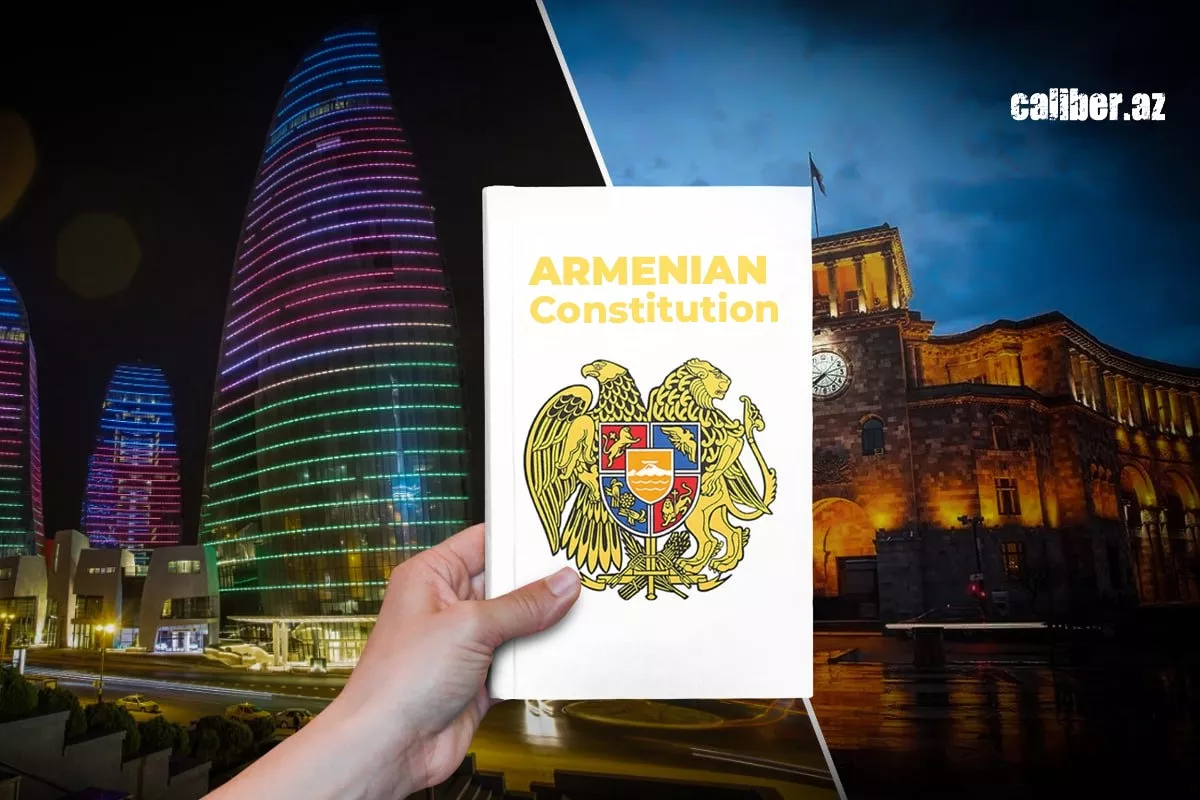Armenia on the brink of offside Mirzoyan and Pashinyan hone the rhetoric of futility
In recent days, the Armenian side has repeatedly and quite clearly expressed its desire to delay the peace process. Most of the statements were made by Armenian Foreign Minister Ararat Mirzoyan, later backed up by Prime Minister Nikol Pashinyan. But let’s take it step by step.
At the 4th Antalya Diplomacy Forum, Mirzoyan took part in a joint discussion panel with the foreign ministers of Azerbaijan and Georgia — Jeyhun Bayramov and Maka Botchorishvili, respectively. During the panel, he voiced the idea that Yerevan was ready to agree to the dissolution of the OSCE Minsk Group simultaneously with the signing of a peace agreement. As for Armenia’s Constitution, he claimed that it contains no territorial claims against Azerbaijan. He repeated — or rather, reinforced — the same messages in a subsequent interview with Turkish broadcaster NTV, prefacing them with a crude manipulative tactic.
"It should be noted that immediately after the announcement of reaching an agreement on the text, the Azerbaijani side came up with a number of preconditions, which related, in particular, to the Minsk Group and the Constitution. There may also be other ideas, as far as I understand," the Armenian foreign minister said, thus opening the topic of preconditions. In other words, the Armenian side is trying to portray the situation as if these preconditions are being presented for the first time — and doing so right after the peace agreement text was finalised — in an attempt to cast Azerbaijan as the party resisting peace.
This kind of insinuation has already been echoed by certain Western politicians and journalists, revealing a broader picture of Yerevan’s coordinated efforts with some European capitals.

Let us recall that Azerbaijan has long insisted on preconditions regarding the Minsk Group and the Armenian Constitution, stressing that without addressing these issues, the signing of a peace agreement is impossible.
Mirzoyan, in the interview, then puts on his most “constructive” face and offers a “counterproposal” — for now, concerning the Minsk Group: “If we accept that the conflict is over and this fact is confirmed by the peace agreement, then neither the Minsk Group nor its subordinate structures are any longer appropriate. It is with this logic that we have proposed signing two documents on the same day: a peace agreement, as well as a joint application to the OSCE or its member states, which will begin the process of dissolving the Minsk Group.”
Following that, the Armenian foreign minister once again stated that the Constitution of the Republic of Armenia contains no territorial claims against Azerbaijan. On the contrary, he claimed, it is the Azerbaijani Constitution that supposedly contains such claims against Armenia. He also brought up — yet again — the worn-out argument about a ruling by Armenia’s Constitutional Court concerning the work of the delimitation and demarcation commission, which allegedly confirms the absence of territorial claims in Armenia’s Constitution.
Here’s what Armenian Prime Minister Nikol Pashinyan said on April 15 during a government Q&A session in the National Assembly regarding the dissolution of the OSCE Minsk Group:
“We understand the agenda put forward by Azerbaijan regarding the dissolution of the OSCE Minsk Group. Indeed, if we are closing the chapter on the conflict — and we are — then what is the need for a format focused on its resolution? We propose to conclude a peace agreement and simultaneously dissolve the OSCE Minsk Group. That is, the signing of both documents on the same day,” Pashinyan stated.

However, unlike Mirzoyan, Pashinyan goes even further and — in his view — provides an explanation for why Yerevan is proposing the simultaneous signing of the peace agreement and the statement on dissolving the Minsk Group:
“But the OSCE Minsk Group, at least de facto, has a broader context, and we want to be sure that Azerbaijan does not view the dissolution of the Minsk Group as a step towards closing the conflict on the territory of Azerbaijan and transferring it onto the sovereign territory of Armenia. For this reason, we propose that Azerbaijan simultaneously sign the peace agreement and a joint appeal for the dissolution of the OSCE Minsk Group’s structures. This is an official proposal.”
Pashinyan is not exactly easy to follow. It is absolutely unclear how Baku could “transfer the conflict onto Armenian territory” by dissolving the Minsk Group. The only thing that becomes clear from this paranoid revelation is that, for Yerevan, the Minsk Group’s very existence equates to the preservation of the conflict on Azerbaijani soil. In other words, Pashinyan has simply revealed Armenia’s true position.
And he did it not once, but twice. After repeating Mirzoyan’s talking points about the "harmlessness" of Armenia’s Constitution, Pashinyan added the following:
“On the other hand, we ourselves see territorial claims against Armenia in Azerbaijan’s Constitution. But we are not raising this issue, because the peace agreement contains the necessary wording that resolves the problem — affirming that the parties have no territorial claims against each other and commit not to make such claims in the future...”
With that statement, Pashinyan completely exposed himself. If Azerbaijan’s Constitution truly contained territorial claims against Armenia’s integrity, Yerevan would absolutely have raised the issue. It would have done so for the simple reason that the legal experts on Pashinyan’s team would certainly have pointed out that the so-called “necessary formulations” in the peace treaty only protect the document from being contradicted by sub-constitutional acts. When it comes to a constitution, however, international treaties cannot override its provisions.
This means that such clauses in the peace agreement — just like the Armenian Constitutional Court’s ruling on the border delimitation and demarcation commissions — are being used by the Armenian side as a smokescreen. It's part of a rhetorical strategy designed to justify keeping in force those provisions of Armenia’s Constitution that contain territorial claims against Azerbaijan.

In other words, Armenia is not raising the issue of Azerbaijan’s Constitution because it feels reassured by the treaty’s wording — but rather because it knows its argument on this matter would not hold water. Fully aware that its position in the “constitutional dispute” is inherently weaker than Azerbaijan’s, Yerevan is now attempting to shield it with all available means, while simultaneously misleading the international community.
There’s much more that could be said on this subject, but one key point stands out and demands emphasis: the Armenian position is marked by a deeply troubling characteristic. Yerevan behaves as though the conflict was ethically balanced — as if it was about some contested territory, with no clear right or wrong, no aggressor or victim. They refuse to acknowledge the fact that for nearly thirty years, they brutally occupied and plundered Azerbaijani lands. And in this sense, they continue to shy away from taking responsibility for the decisive steps that would help Baku safeguard itself against any renewed acts of aggression from the Armenian side.
Azerbaijan is not asking for much. But it will not pretend that nothing ever happened either. Under the current circumstances, it is Yerevan that bears the responsibility for making a critical decision — the dissolution of the Minsk Group. That should be the first step towards peace. The second must be constitutional reform. This is the bare minimum required for Azerbaijan to even begin to consider Armenia as a counterpart in any kind of relationship.
Put differently: in a reality where genuine repentance for past wrongdoing seems out of reach, we at least expect a clear commitment not to repeat those actions in the future.
By ignoring these simple truths and once again dragging the conversation into the weeds of low-grade sophistry, Pashinyan and his team are further diminishing Armenia’s standing — portraying it as a country unable to learn from the past or build relations with its neighbours. With such an attitude, there can be no peace. And without peace, there will be no stable Armenia.
The ball has long been in Armenia’s court. If you’re not playing it — you’re offside.








